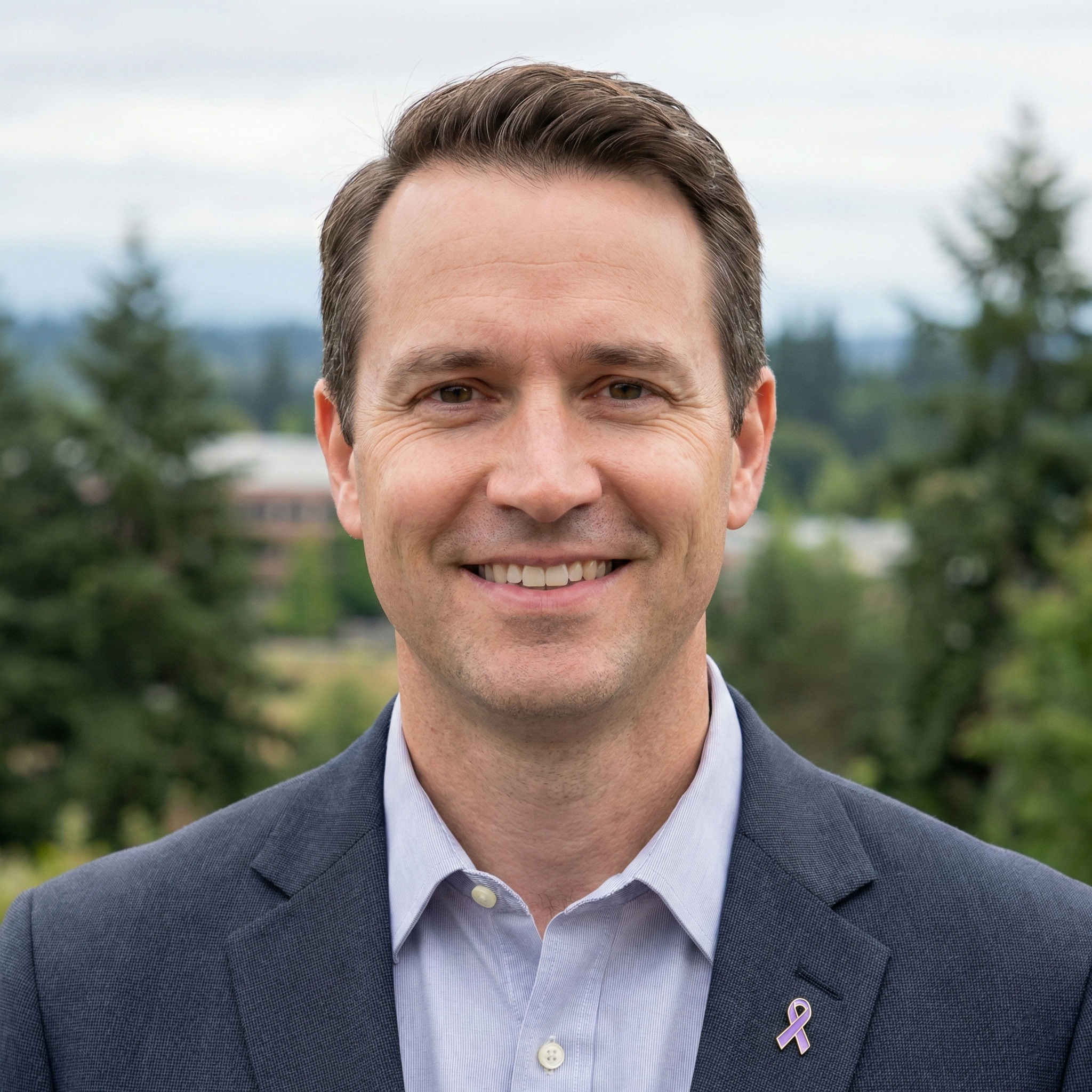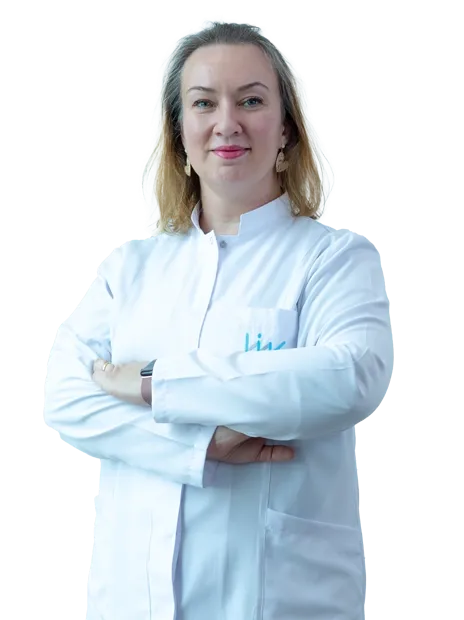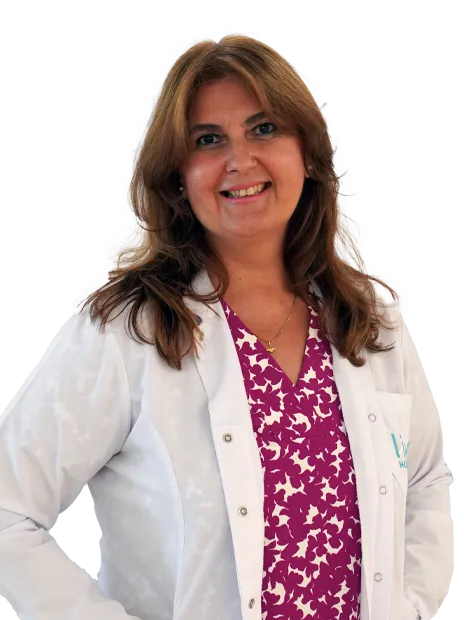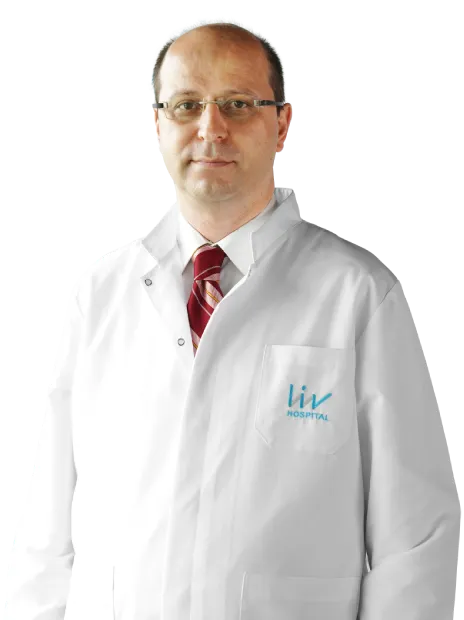At what age do people get colon cancer? Colon cancer can happen at any age. But, the risk goes up as people get older. The American Cancer Society says most cases are found in people over 50. This shows how important it is to know how age affects the risk of getting this disease.
The average diagnosis age for colon cancer is key for both patients and doctors. It helps figure out who’s at risk and when to start screenings.
Key Takeaways
- Colon cancer risk increases with age.
- Most cases are diagnosed after 50.
- Understanding the median age of diagnosis is key for risk assessment.
- Screening schedules are often based on age and risk factors.
- The American Cancer Society gives guidelines for screening based on age and other risk factors.

Understanding Colon Cancer Age of Diagnosis
Colon cancer diagnosis age is key to understanding the disease’s impact and treatment options. The risk of colon cancer grows with age, with most cases found in people over 50. Yet, younger adults can also get it, often with more aggressive forms.
Definition and Significance of Age in Colon Cancer
Age is a big factor in colon cancer, affecting both the chance of getting it and its type. Early-onset colon cancer, found before 50, is becoming more common. Knowing the importance of age helps in creating better screening and treatment plans.
How Age Impacts Prognosis and Treatment
The age when colon cancer is diagnosed greatly affects its treatment and outcome. Younger patients often face more aggressive diseases but have fewer health issues. This makes them good candidates for strong treatments. On the other hand, older patients may have more health problems, making treatment choices harder.
| Age Group | Common Characteristics | Treatment Considerations |
| Under 50 | More aggressive disease, fewer comorbidities | Aggressive treatment approaches |
| 50 and above | Higher incidence, more comorbidities | Consideration of comorbid conditions in treatment planning |
The Average Age of Colon Cancer Diagnosis
Knowing the average age of colon cancer diagnosis is key for health efforts. Colon cancer is a big health issue worldwide. It shows different trends in diagnosis age in different groups.
Median Age Statistics in the United States
In the United States, the SEER database shows men are diagnosed at 66 years old. Women are diagnosed at 69 years old. This shows a big difference in diagnosis age between genders.
| Gender | Median Age at Diagnosis |
| Male | 66 |
| Female | 69 |
Global Comparison of Diagnosis Ages
Worldwide, colon cancer rates vary, with more cases in developed countries. The age at diagnosis also changes a lot in different places.
Looking at global data, countries with longer life expectancies and better healthcare have more colon cancer. They also have an older average age at diagnosis.
Early-Onset Colorectal Cancer: A Growing Concern
Early-onset colorectal cancer is now a big health worry. It’s diagnosed before 50, unlike the usual older age group. This change is worrying doctors and the public.
Defining Early-Onset Colon Cancer
Early-onset colon cancer is diagnosed in people under 50. This is important because it changes who we think gets colon cancer. Traditionally, we thought it started at 50, but now it’s happening in younger people. This makes us rethink how we screen and assess risks.
Rising Incidence Rates Among Younger Adults
Colorectal cancer is on the rise in young adults. This is true not just in the U.S. but worldwide. The reasons are complex, including genetics, lifestyle, and environment.
| Age Group | Incidence Rate Trend | Potential Risk Factors |
| 20-29 | Increasing | Lifestyle, Genetic Predisposition |
| 30-39 | Rising | Diet, Obesity, Family History |
| 40-49 | Steadily Increasing | Sedentary Lifestyle, Environmental Factors |
Potential Causes for Increasing Youth Cases
The exact reasons for more young people getting colon cancer are being studied. Diet changes, more obesity, and genetics might play a part. Knowing this helps us create better prevention and screening plans.
Colon Cancer in Your 20s
Colon cancer is becoming more common in people under 30. This is causing worry among doctors. It shows we need to know more about the risks and signs of colon cancer in young people.
Incidence Rates and Risk Factors
Young adults with colon cancer often have a family history or genetic syndromes. Familial adenomatous polyposis (FAP) and Lynch syndrome are two genetic conditions that raise the risk of colon cancer at a young age.
The table below summarizes key risk factors for early-onset colon cancer:
| Risk Factor | Description |
| Family History | Having a first-degree relative diagnosed with colon cancer |
| Genetic Syndromes | Conditions like FAP and Lynch syndrome |
| Lifestyle Factors | Diet, physical activity level, and obesity |
Symptoms and Detection Challenges
Symptoms of colon cancer in young adults can be hard to spot early. Common signs include stomach pain, changes in bowel habits, and unexpected weight loss. It’s important for young adults to know these signs and see a doctor if they don’t go away.
Getting diagnosed early is critical for treatment. Learning about the risks and symptoms can help find colon cancer early, even in young adults.
Colon Cancer in Your 30s
Colon cancer cases are rising in people in their 30s. This calls for age-appropriate screening. It’s important to know about early-onset colon cancer and its specific needs.
Prevalence and Unique Considerations
Colon cancer in the 30s is more common than before. Early-onset colon cancer brings its own set of challenges. These include delayed diagnosis, as people think colon cancer only affects older adults. Genetics, diet, and lifestyle also play a role in this increase.
Recent studies show a big change. Younger adults are getting diagnosed with colon cancer more often. This means we need to rethink screening guidelines for younger people.
Case Studies and Survival Rates
Case studies show early detection is key for young colon cancer patients.
“Early diagnosis is key to improving survival rates among young adults with colon cancer.”
Survival rates depend on when the cancer is found. This highlights the need for early screening.
Knowing the risks and symptoms can help catch cancer early. It’s vital for 30-somethings to talk to their doctors about screening. They should consider age-appropriate screening options.
Colon Cancer in Your 40s
Reaching your 40s is a big deal. It’s a time when knowing about colon cancer risks is key. This decade is all about being aware and taking steps to prevent colon cancer.
Statistical Trends and Risk Assessment
As you get into your 40s, the chance of getting colon cancer goes up. Studies show more people are diagnosed with colon cancer in this age group. Knowing your family history, genetic risks, and lifestyle habits is important. For example, having a family history of colon cancer or certain genetic conditions raises your risk.
Tools and guidelines help doctors figure out when to start screening for colon cancer. Being overweight, smoking, and eating too much processed food can also up your risk.
Screening Recommendations for This Age Group
Most people without risk factors should start screening at 45. But, those with risk factors might need to start earlier, even in their 40s. The right screening test depends on your risk level and what you prefer.
Getting screened at the right age is key to catching colon cancer early. It’s vital for people in their 40s to talk to their doctor about their risk and screening options. This way, they can find the best screening plan for them.
Colon Cancer at Age 50 and Above
After 50, the risk of colon cancer goes up. This age is key for colon cancer screening. It’s been a focus for years.
Traditional Risk Zone and Statistics
The age of 50 marks a big milestone for colon cancer screening. Most colon cancer cases are found in people 50 and older. The American Cancer Society says the risk of colon cancer starts to rise at 50.
“The risk of colorectal cancer increases with age, with most cases occurring after the age of 50,” as noted by cancer research institutions. This has led to a historical emphasis on screening individuals in this age bracket.
Changes in Screening Guidelines
Recently, screening guidelines have changed. The American Cancer Society now says adults should start screening at 45, not 50. This change reflects the rising incidence of colon cancer among younger adults. The new guidelines hope to catch colon cancer early, when it’s easier to treat.
A doctor said, “Lowering the screening age to 45 acknowledges the increasing incidence of colon cancer in younger populations and aims to improve early detection and treatment outcomes.”
Elderly Onset: Colon Cancer Over 65
Colon cancer hits older people hard. It becomes more common with age, making it a big worry for those over 65.
Prevalence in Older Populations
Most colon cancer cases happen in people 65 and older. Recent numbers show this age group gets a lot of new diagnoses. This rise is due to genetic changes and long-term exposure to risks.
- Increased incidence with age
- Higher proportion of diagnoses in older adults
- Cumulative risk factors
Treatment Considerations for Elderly Patients
Treating colon cancer in the elderly requires careful thought. Doctors look at the patient’s health, how well they can handle treatment, and any other health issues. The goal is to find the best treatment that works well without causing too many side effects.
- Assessment of overall health
- Consideration of comorbid conditions
- Personalized treatment planning
Treatment for older patients might include surgery, chemotherapy, or both. The choice depends on the cancer’s stage, the patient’s health, and their wishes. It’s important for doctors to talk about the pros and cons of each option with the patient.
Genetic Factors Affecting Age of Onset
Genetic factors play a big role in why some people get colon cancer early. Certain genetic syndromes raise the risk of colon cancer, leading to an earlier onset. Lynch Syndrome and Familial Adenomatous Polyposis (FAP) are two notable conditions linked to colon cancer.
Lynch Syndrome and Age of Diagnosis
Lynch Syndrome, or hereditary nonpolyposis colorectal cancer (HNPCC), is a genetic disorder. It increases the risk of colon cancer and other cancers. People with Lynch Syndrome often get colon cancer before 50, 10-15 years earlier than others.
Key characteristics of Lynch Syndrome include:
- Early onset of colon cancer
- Increased risk of other cancers, such as endometrial, ovarian, and gastric cancer
- Family history of colon cancer
FAP and Early Onset
Familial Adenomatous Polyposis (FAP) also raises the risk of colon cancer. FAP causes hundreds to thousands of polyps in the colon and rectum, starting in the teenage years. Without treatment, people with FAP face a nearly 100% chance of colon cancer by 40.
The implications of FAP for early onset colon cancer are significant:
- Early screening and preventive measures are key
- Prophylactic colectomy is often recommended
- Regular surveillance is needed to watch for other cancers
Demographic Factors and Colon Cancer Age Distribution
Colon cancer shows a complex mix of age, race, and wealth. This mix changes not just when people get diagnosed but also how well they do after. It’s different for each group.
Racial and Ethnic Variations in Diagnosis Age
Colon cancer hits some groups harder than others. African Americans face a higher risk than many others. They often get diagnosed younger and have more serious cases.
| Ethnic Group | Average Age at Diagnosis | Incidence Rate |
| African American | 58 | 54.4 per 100,000 |
| Caucasian | 62 | 43.8 per 100,000 |
| Asian/Pacific Islander | 65 | 38.4 per 100,000 |
Socioeconomic Factors Influencing Early Detection
Things like healthcare access, education, and insurance matter a lot. People with less money often get diagnosed too late. This leads to worse results.
Targeted efforts to help those with less access are key. They can make a big difference in fighting colon cancer disparities.
Age-Appropriate Screening Recommendations
Getting screened for colon cancer is key to staying healthy. It’s important to know when to start and why some might need to start sooner.
Current Guidelines by Age Group
Experts say people should start screening at 45 if they’re at average risk. This is because colon cancer is becoming more common in younger people.
| Age Group | Recommended Screening |
| 45-50 | Colonoscopy or stool-based tests |
| 50-75 | Regular colonoscopy or other approved screening methods |
| 76 and above | Screening decision based on individual health status |
When to Start Screening Earlier
If you have a family history of colon cancer or certain genetic conditions, you might need to start screening earlier. Always talk to your doctor to figure out the right time for you.
Conclusion
Colon cancer’s age of diagnosis varies a lot among people. The risk goes up with age. But, there’s a worrying trend of more colon cancer in younger adults. It’s key to know the risks and the need for early screening.
In the U.S., the average age for colon cancer diagnosis is about 66 years. Yet, it’s happening in people as young as their 20s and 30s. Genetic conditions like Lynch Syndrome and FAP can make it start earlier. Also, race and ethnicity play a part in when colon cancer is diagnosed.
Guidelines say to start colon cancer screening at 45 for most people. But, those with a family history or genetic risk might need to start sooner. Early screening can lead to better treatment and survival chances. Knowing the risks and the importance of screening helps in catching cancer early.
FAQ
What is the average age of colon cancer diagnosis?
In the United States, the average age for colon cancer diagnosis is about 66 years old. This is the median age.
Is colon cancer common in young adults?
Yes, colon cancer is more common in older adults. But, there’s a growing number of cases in younger adults. Some are diagnosed before they turn 45.
What are the risk factors for colon cancer in people under 50?
For those under 50, risk factors include a family history of colon cancer. Also, genetic syndromes like Lynch Syndrome or FAP are risks. Diet and lifestyle play a role too.
At what age should I start screening for colon cancer?
Guidelines suggest starting colon cancer screening at 45 for average-risk individuals. Those at higher risk might need to start earlier.
How does age impact the prognosis and treatment of colon cancer?
Age can affect how well colon cancer is treated. Older adults might have more health issues. This can make some treatments less effective.
Are there any genetic factors that can affect the age of onset for colon cancer?
Yes, genetic conditions like Lynch Syndrome and FAP can raise the risk of colon cancer at a younger age. People with these conditions should start screening early.
How do demographic factors influence the age distribution of colon cancer diagnosis?
Demographic factors like race, ethnicity, and socioeconomic status can affect when colon cancer is diagnosed. Some groups might be diagnosed at a younger age.
What are the symptoms of colon cancer in young adults?
Young adults with colon cancer might show symptoms like changes in bowel habits, blood in the stool, and abdominal pain. These symptoms can be mistaken for other issues.
Can colon cancer be prevented?
While we can’t prevent all colon cancer, screening and removing precancerous polyps can help. A healthy diet and regular exercise can also lower the risk.
What is the significance of early detection in colon cancer?
Finding colon cancer early is key. It can lead to better treatment outcomes and higher survival rates. Screening is a good way to catch it early.



































